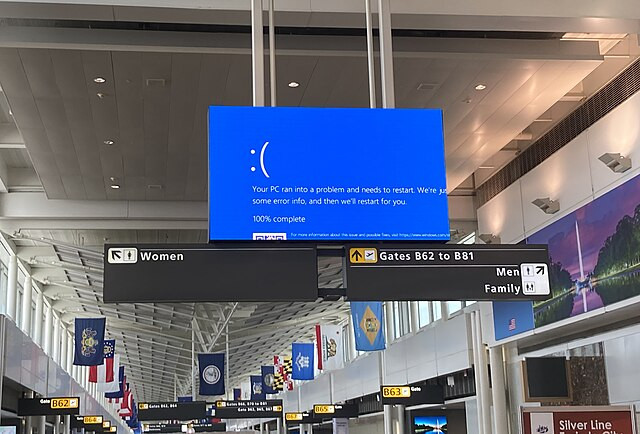In the wake of a massive IT outage triggered by a faulty update, CrowdStrike CEO George Kurtz reported that over 97% of systems affected by the issue are now back online. The incident, which grounded flights and disrupted major services worldwide, affected approximately 8.5 million machines. Despite the significant recovery progress, around 250,000 devices remain offline.
Kurtz expressed his gratitude to both customers and staff for their relentless efforts in resolving the crisis. "While I can't promise perfection, I can promise a response that is focused, effective, and with a sense of urgency," Kurtz stated in a LinkedIn post. He acknowledged that the company's work is not yet complete and reaffirmed their commitment to restoring every impacted system.
The initial recovery was hampered by the need for physical access to devices, as the solutions required restarting machines in safe mode and deleting the faulty file. To expedite the process, Microsoft released a tool to aid in automated recovery, enhancing CrowdStrike's efforts significantly.
CrowdStrike has provided detailed insights into how the issue arose in a Preliminary Incident Review, and the company has pledged to implement measures to prevent a recurrence. Despite these efforts, CrowdStrike faced criticism for its handling of the aftermath, particularly for offering a $10 UberEats voucher to affected staff and partners. This gesture, intended as a token of appreciation, was perceived as insufficient by some. "I literally wanted to drive my car off a bridge this weekend and they bought me coffee. Nice," commented one Reddit user, reflecting the frustration felt by many.
Financial losses from the outage were substantial. According to insurance firm Parametrix, the top 500 U.S. companies by revenue, excluding Microsoft, suffered an estimated $5.4 billion in financial damages. This incident has also taken a toll on CrowdStrike's share price as the company grapples with the reputational fallout.
CrowdStrike initially rolled back the problematic update to address the issue. Kurtz, in his LinkedIn post, offered a personal apology: "I am deeply sorry for the disruption this outage has caused and personally apologize to everyone impacted."
The controversy surrounding the $10 gift card was further clarified by CrowdStrike. A spokesperson told CNBC that the gift cards were intended for external partners working closely with customers during the crisis, not for customers or clients themselves. "Uber flagged it as fraud because of high usage rates," the spokesperson added, addressing issues some users had faced while trying to use the cards.
As the company continues to navigate the aftermath, Kurtz emphasized their ongoing dedication to full recovery. "To our customers still affected, please know we will not rest until we achieve full recovery," he assured. The development of automated recovery tools has been a critical component in accelerating the restoration process.






